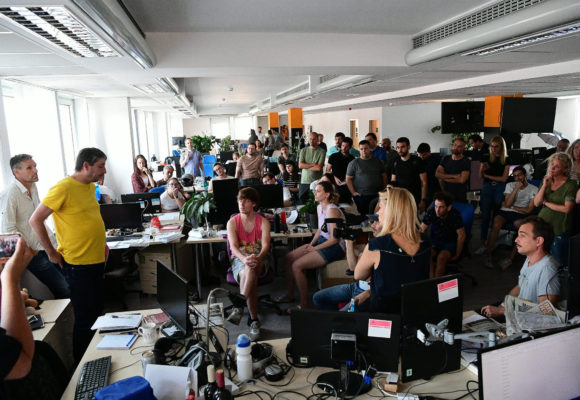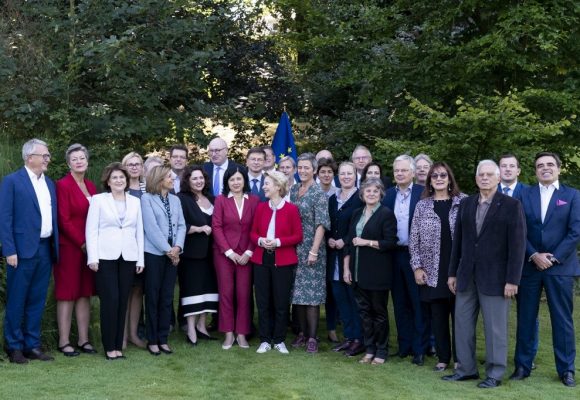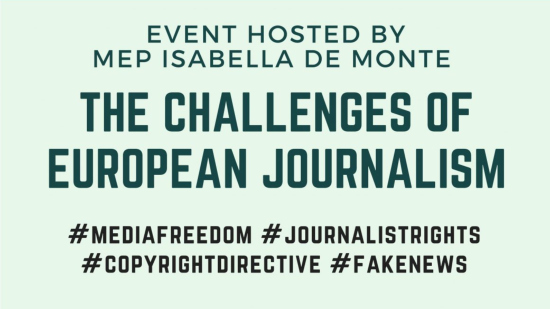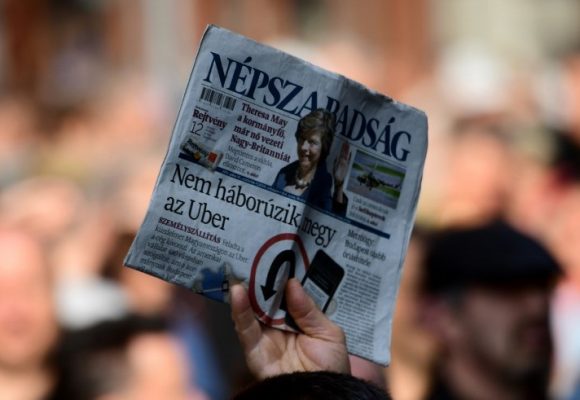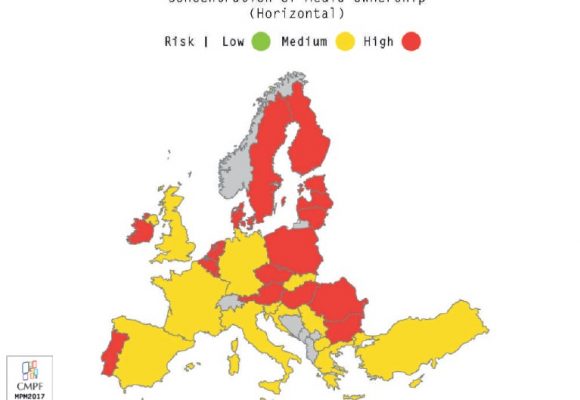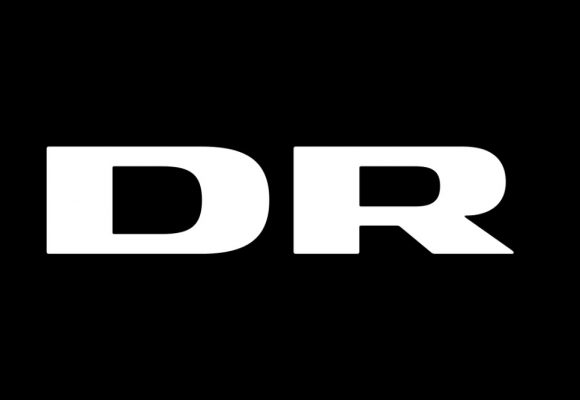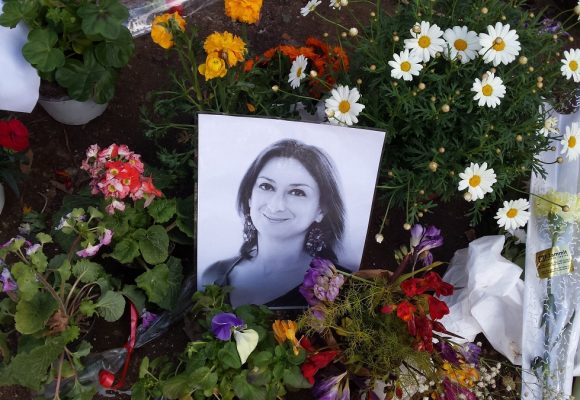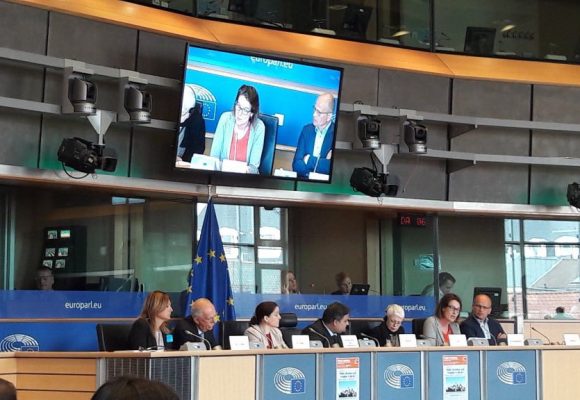#media pluralism
Hungary: journalists at Index resign, EU must take action
Thousands of people took to the streets in Budapest on Friday evening to demonstrate against the attacks on Hungary’s biggest independent news portal “Index”. The European Federation of Journalists (EFJ) welcomes this protest march and calls on European leaders to protect media freedom in Hungary. The editorial board and more than 70 journalists at “Index” have resigned, two days after its editor-in-chief Szabolcs Dull was fired amid claims of political interference. On Friday, three leading editors and more than 70 others said they were ending their employment there, because board president Laszlo Bodolai had refused to reinstate the chief editor. The…
MPM2020: poor working conditions for journalists in 13 European countries
The 2020 Media Pluralism Monitor (MPM2020) confirms mounting harassment against journalists, media outlets face increasing economic uncertainty, as online media sphere fails to reinforce pluralism. The report points out a deteriorating situation regarding the standards and protection of the journalistic profession. Croatia, the United Kingdom, Bulgaria, Hungary, Spain, Romania, Slovakia, Albania, Italy, Slovenia, Malta, Ireland and France score as being at medium risk and Turkey as high risk for this indicator. The sub-indicator on journalists’ working conditions scores an alarming high risk in 13 countries: Albania, Bulgaria, Croatia, Greece, Hungary, Italy, Lithuania, Portugal, Romania, Slovenia, Spain, Turkey and the United Kingdom. The European University Institute (EUI)…
Media Pluralism has become a priority for the European Commission
Together with the European Trade Union Confederation (ETUC), the European Federation of Journalists (EFJ) believes that the distribution of European Commission portfolios is a hopeful sign that the European Union can deliver social progress over the next five years. The EFJ particularly welcomes the fact that media pluralism is mentioned as one of the EU Commission’s priorities. European Commission President-elect Ursula von der Leyen presented on Tuesday the proposed new team of Commissioners, including some hopeful developments. As the ETUC has stated, Commissioners Nicolas Schmidt (Luxembourg) and Paolo Gentiloni (Italy), proposed for the jobs and economy portfolios, were both strong…
Croatian journalists stage protest against abusive lawsuits
Several hundred journalists rallied in Zagreb on Saturday to protest against a wave of lawsuits targeting the media. According to the Croatian Journalists’ Association (HND), an EFJ affiliate, which organized the march, politicians, public figures and corporations had filed over 1,100 lawsuits against journalists and news outlets. HND says these court cases are part of an attempt to censor the media and put pressure on journalists. The protest was called after Croatian public broadcaster HRT itself filed 36 lawsuits against its own journalists and others, including HND head Hrvoje Zovko and HND branch in Public Service Media, who complained of…
Italy: increasing attacks against status of journalists
On 27 November, Italian MEP Isabella De Monte (S&D) organised the event “The challenges of European Journalism”, taking as an example the recent problems of Italian journalism, such as politicians’ attempts to undermine public media credibility and the difficult economic situation of Italian journalists and media, to discuss about the more widespread attacks to free press throughout Europe. An issue that has to be addressed right now before the European elections with disinformation on the rise said De Monte. The European Federation of Journalists (EFJ) was represented by its director Renate Schroeder, participating together with Raffaele Lorusso, general secretary of the affiliate Federazione Nazionale della Stampa…
Hungary: new pro-government media conglomerate threatens pluralism
The European and International Federations of Journalists (EFJ-IFJ) join their affiliates in Hungary, HPU and MUOSZ, in calling on Hungarian authorities to obstruct the formation of a huge media conglomerate that questions media pluralism. The owners of a majority of Hungary’s pro-government media outlets said Wednesday they are donating their companies to a foundation, the “Central European Press and Media Foundation”. This new right-wing media conglomerate will include cable news channels, online news portals, tabloid and sports newspapers and all of Hungary’s county newspapers, several radio stations and numerous magazines. Among the media companies to be under its control are Echo Penisola Ltd.…
Risks for media pluralism and safety of journalists are increasing across Europe
The Media Pluralism Monitor (MPM) has examined 28 European Union Member States as well as three candidate countries: Turkey, Serbia and Macedonia. The results of this second EU-wide implementation of the MPM show either general stagnation or deterioration in all of the major areas encompassed by the MPM and confirm that no country analysed is free from risks to media pluralism. The Centre for Media Pluralism and Media Freedom (CMPF), based in Florence, has just published its 2017 Media Pluralism Monitor reports (#MPM2017). Year 2017 was marked by events that have had a significant impact on media freedom and media…
Danish government to cut 20% funding for public service media
The European Federation of Journalists (EFJ), representing 320.000 journalists across Europe, is shocked to learn that the Danish government intends to cut 20 percent of funding for Danish public service media (DR). The EFJ urges the government in Denmark to withdraw its proposal. The Danish government has agreed on a new media agreement that is expected to come into effect on January 1, 2019. The new measures include a cut in DR’s budget of 20%. It will also scrap the licence fee for public broadcasting. The measures were taken by the VLAK government with the support of the Dansk Folkeparti party. Free and…
Malta: journalists’ basic protection deteriorates
Journalists’ basic protection in Malta has deteriorated. That is one of the main outcomes of the “Media Pluralism Monitor” for Malta, presented by the Centre for Media Pluralism and Media Freedom (CMPF) of the European University Institute, in the University of Malta, on 9 March. The Media Pluralism Monitor (MPM) is a holistic tool applied to assess the state of play of media pluralism and media freedom in the European Union member states and candidate countries. The findings were presented by professor Pier Luigi Parcu, director of CPMF, and Iva Nenadic, reserach associate at CPMF, who drawn up the report following a…
Council of Europe: new guidelines on media pluralism and transparency of media ownership
The Council of Europe has issued guidelines to its 47 member states in order to promote media pluralism, transparency of media ownership and media literacy. In a Recommendation adopted today, the Committee of Ministers endorses a comprehensive framework of guidelines for creating a pluralist, transparent and participatory media environment, both offline and online. States are encouraged to develop strategies for increasing the sustainability of a variety of media ranging from public service media, local, minority, community and cross-border media. States are also encouraged to support quality independent and investigative journalism, whilst fully respecting the editorial and operational autonomy of the…
Media Pluralism Monitor: preliminary results for Malta
Event organised by the Centre for Media Pluralism and Media Freedom (CMPF) of the European University Institute (EUI) in a cooperation with the Faculty of Media and Knowledge Sciences (MAKS) at the University of Malta. The aim of the event is to present the latest results of the Media Pluralism Monitor for Malta, and to encourage a multi-stakeholders discussion about vulnerable aspects of Maltese media system and about wider challenges for freedom of expression and journalism in EU. The Media Pluralism Monitor is a holistic tool regularly applied to assess the state of play of media pluralism and media freedom…
‘Media (literacy) and Refugees’ events to discuss media role in representing migrants
The European Association of Viewers’ Interests (EAVI) and MyStory project have announced their ‘Media (Literacy) and Refugees’ event, taking place on 5 December 2017 at L42 Rue de la Loi. EAVI is a non-profit international organisation, working across Europe to promote media literacy. In the morning, a series of roundtable discussions will look at the way media shapes citizens’ perceptions of migrants and refugees. The discussions will highlight the success of grassroots organisations and their media initiatives, and touch on media literacy, journalism, civil society and fake news. The project Media Against Hate will be presented at this occasion. Registration here.…
MPM2017 conference
EP hearing: “Media pluralism essential element for democracy”
Citizens’ fundamental rights to freedom of expression and information can only be guaranteed through media freedom and pluralism. Even though that is enshrined in Article 11 of the Charter, the reality is different. “Since our last report in 2013, plurality has just gotten worse,” stressed Italian MEP Barbara Spinelli in her opening remarks at the “Media Pluralism and Freedom in the EU” hearing, which took place in the European Parliament on Tuesday (11/07/2017). Organised by the Civil Liberties, Justice and Home Affairs (LIBE) Committee, it reflected the media situation in EU, with the experts presenting the most alarming issues. Spinelli…
EU Presidency seminar: Media pluralism and the rule of law in the digital age
Hearing in the European Parliament on Media Pluralism and freedom in the EU
The Committee on Civil Liberties, Justice and Home Affairs in the European Parliament will hold a public hearing on “Media pluralism and freedom in the EU”. The hearing will take place on Tuesday, 11 July 2017 from 9.00 – 11.00 in the European Parliament in Brussels, Room József Antall (4Q1). Renate Schroeder, EFJ Director, is invited as a speaker to give a short presentation and to participate in the debate with the Members.

